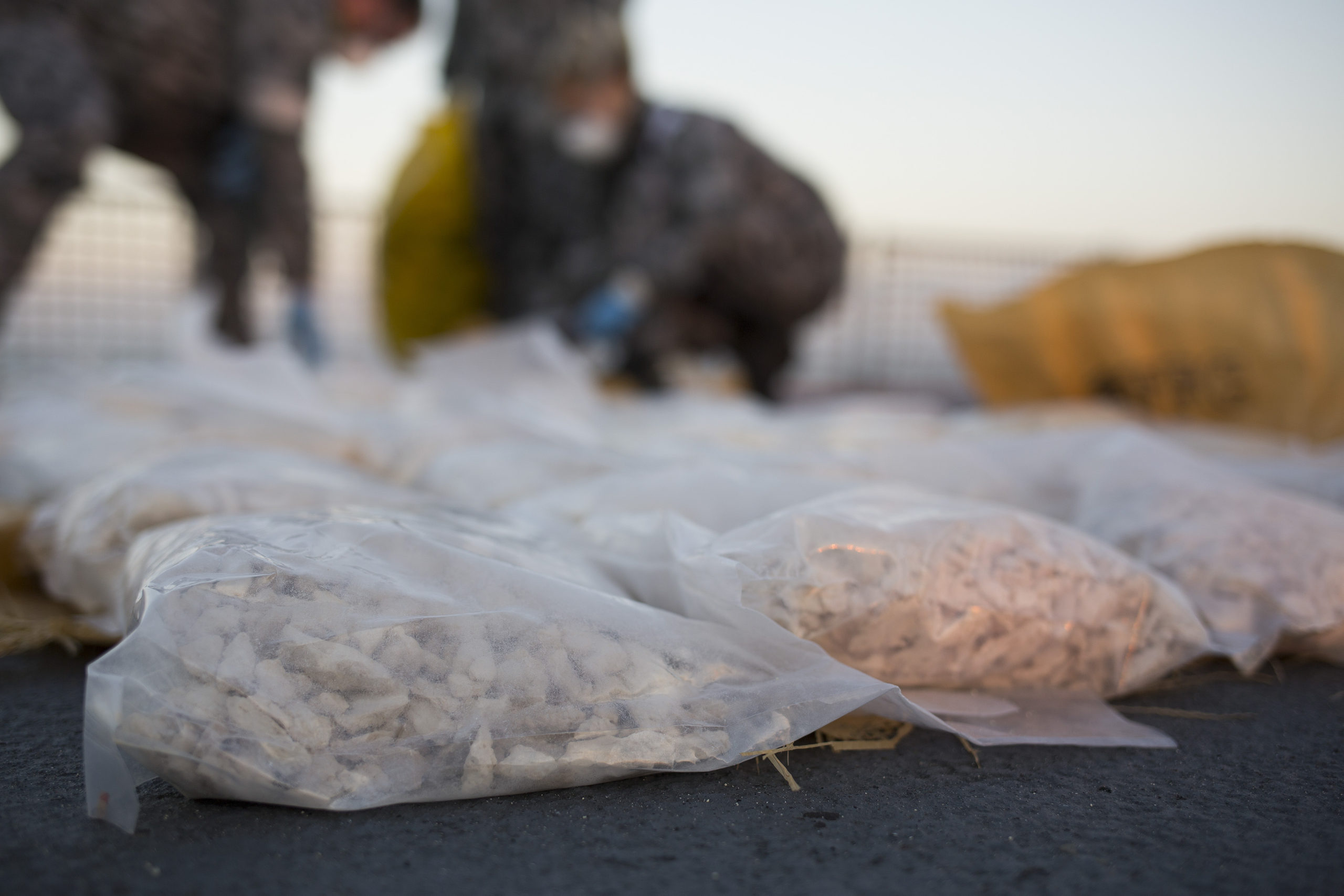In the midst of the Covid-19 pandemic, the US Department of Defence announced on April 1st the commencement of enhanced counter-narcotics operations to be undertaken by the US Southern Command.
In an effort to stem the flow of illicit drugs into the country, the US military has recently been deploying a variety of Air Force, Navy and Coast Guard assets in a series of successful interdiction tasks. More recently though, the US Army deployed a Security Force Assistance Brigade (SFAB) Company in a counter-narcotics advise and assist role in Colombia.
Unlike the ADF, the US military is not unfamiliar with counter-narcotics operations since President Nixon first declared a war on drugs in 1971. The deployment of an SFAB in this capacity though is a first for the US Army. Details of the deployment are not yet clear, although the growing cocaine cultivation in Colombia has presented a continued challenge for Colombian authorities.
For SFABs that are trained in Build Partner Capacity roles, there are likely to be challenges ahead in this deployment that are worthy of consideration for the ADF.
Australia’s geography and the nature of its own drug trade which sees the international mail as the most common form of entry into Australia, has largely avoided military involvement in these types of operations. The Special Operations Task Group’s Counter Nexus mission in Afghanistan along with Royal Australian Navy interdictions in the Middle East Area of Operations provide notable exceptions though.
Nevertheless, the continued growth of these trades within our region and enduring nature of asymmetric warfare point to an increasing likelihood that the ADF will see itself involved in these types of operations again in the future.
What makes these types of operations unique is the inherent blurring between traditional policing roles and that of the military. Yet, while they are unique, it is important to acknowledge that this blurring is becoming more common as the nexus between rebel groups and criminal enterprises continues to grow.
Rebel groups need money in order to survive and illicit drug trades have proven themselves to be an easy source of fundraising. But the issue is not as simple as insurgencies and terror groups cultivating drugs in between acts of rebellion. Rather, it is the power that controlling these trades generates that deserves closer attention.
Illicit drug trades transcend most aspects of conflict and society. The drugs are more often cultivated by poor farmers who see no other alternative than to cultivate crops that provide them access to land, credit and/or a higher profit yield. Similarly, the refinement and trafficking of these drugs can be carried out by the same demographics just as commonly as they can be carried out by larger Drug Trafficking Organisations (DTOs).
Irrespective of any ideological affiliation with the rebellion, these people more often find themselves supporting the insurgency out of their own self-interest, further blurring the lines of those who are taking a direct part in hostilities.

Regardless of whether rebel groups facilitate illicit drug trades, or simply manipulate their existence, they have an interest in ensuring their survival. As the livelihoods of those who support the trade become increasingly criminalised, the divide between them and government continues to grow.
This provides opportunities for rebel groups to further perpetuate this divide by providing mafia-like protection services against the government. What results is a large demographic who are willingly financing an insurgency that is isolating them from the state but is simultaneously protecting their livelihoods.
Developing a successful counter-narcotics campaign has proven to be just as challenging as developing one for a counterinsurgency. Developing both campaigns at the same time has proven to be almost impossible. The half century civil war against the Revolutionary Armed Forces of Colombia (FARC) was only brought to a close with a peace deal in 2016, but (as evidenced by the SFAB deployment), this has done little to stop the illicit drug trade that FARC helped to perpetuate, or the violence that it generates.
In Afghanistan, consistent counter-narcotics operations have done little to curtail the growth of the drug trade while the Taliban continues to control more territory than at any point since the war began over 18 years ago.
In drug cultivating nations that are absent politically motivated rebellion, the threat that DTOs pose to the state can be just as profound. Mexico’s drug violence has resulted in annual death tolls that would rival most civil wars, posting its highest monthly record of murders in March since formal records began in 1997.
Many of these DTOs are so powerful that they can often wield state-like power to close off entire communities. Examples of this were demonstrated recently in Brazil, Venezuela and El Salvador in response to the COVID-19 outbreak.
Countering this threat involves a complex interaction of policing, governance, aid and military actions that can often be contradictory. Understanding the complexities of these trades and the nexus that they can often generate is an important first step towards countering their proliferation.
For the SFAB recently deployed to Colombia, they are likely to be confronted with this complexity and the ADF would do well to learn from their experiences.
Gareth Rice is a cavalry officer in the Australian Army undertaking postgraduate research on this topic with UNSW-Canberra. He is also an associate editor on this platform. His views do not necessarily reflect those of the ADF or Australian Government.

